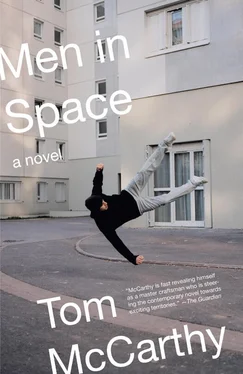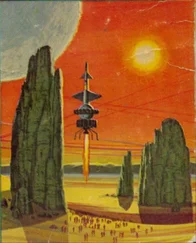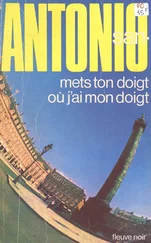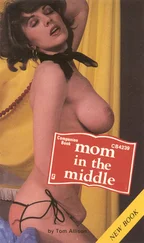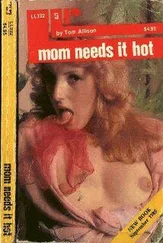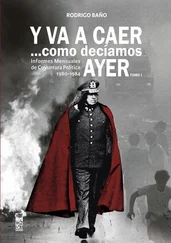It’s an old building with a street door you walk straight through to a mews-like porchway Mrs Maňásková lives on the second floor, up an uneven wooden staircase. When Nick rings the bell, a dog barks on the far side of the door. Mrs Maňásková opens, holding the dog back with her legs. She’s hefty — reminds Nick of Dana at AVU. Around her orange hair she wears a handkerchief.
“I’m … My friend Gábina phoned … I’m very sorry …”
Before he can finish she’s stepped forwards, wrapped her arms around him and hugged him right into her chest. She holds him there, face pressed into her plastic apron, for what seems like a long time, then pushes him back so he’s at arms’ length from her and, with her hands still clamped onto his shoulders, scrutinizes him.
“You speak German?”
“Yes. I also …”
“You’re frightened of the dog? Don’t worry. He’s a good dog.” They always say that. “Come in. Sit down here.” A plate of nibbled chlebíčky is sitting on the table. Another person’s appeared in a doorway that leads off from the kitchen to a corridor on its far side, a tall man of forty-odd. He moves awkwardly forwards and they shake hands: Joost, the man tells him.
“Oh yes,” says Nick, switching to English, “we …”
“You are hungry, nein ?” Mrs Maňásková cuts in.
“Me? Oh no, I’m fine. I wouldn’t want to …”
“I’ll just go and …” Joost slips back away into the other room. Mrs Maňásková’s opening the fridge. She turns to Nick.
“When did you last eat?”
“Well … late this morning.” Bread with lard: Gábina saves butter for special occasions.
“I’m going to cook for you.” She turns back to the fridge and pulls from it a slab of wet red meat. The dog, a shabby black mongrel of some kind, is sniffing at his thigh. In Prague’s streets they all wear muzzles; he never has to worry about being attacked. In London he used to get it all the time: they can smell fear, like sharks. Blood too: who was it said they know when girls are on? Heidi? Angelika? Maybe dogs in Amsterdam have to wear muzzles too. Mrs Maňásková’s pulled open a drawer and taken out a wooden hammer. She lays the slab of meat out on the sideboard and starts tenderizing it. On a shelf to the right of the cooker there’s a framed photo of a man who looks like Maňásek but can’t be him because the photo’s old, with a metallic brown pigment smeared around the figure. The photo vibrates as Mrs Maňásková slams the hammer down onto the meat. She spends a long time pounding it; when she’s finished doing this she slices it up and drops the pieces into a frying pan. She reaches for another shelf just to the cooker’s right that’s lined with large jars half-full of various home-pickled produce. There are twenty or so hard-boiled eggs in one: they look years old. Another has shredded cabbage, sauerkraut; another, sausages. She’s trying to roll the cabbage jar towards the shelf’s edge, tickling its side with her fingertips. Nick gets up.
“Can I …”
But it’s already toppled over and begun its fall. She catches it before it hits the sideboard, firmly, confidently. With her left arm still cradling it, she wrenches its lid loose, fishes out a tuft of white threads with her fingers and drops them into the pan.
“Five minutes now. You may go and place your possessions together. They’re in the second room through there.”
Well, no. The green trunk’s there, but it’s half empty. Where’s the Campbell’s Soup-can T-shirt Roger gave him? And the jeans he borrowed from Jean-Luc? A washing machine in this room’s corner has opened its stomach to strew sheets and socks across the floor, but none of them are his. It’s not really the time to ask her to locate missing things: he’ll just have to gather what he can. On the wall behind the washing machine there’s an old poster of the Soviet Union. Must have been for teaching her classes: all the states’ names are written in Cyrillic. It was compulsory, Gábina said: Russian, Soviet history, Soviet geography. Most of these coloured states must be gone now — gone, or going: veering apart like pool balls separating on the break, only Russia left …
After he’s packed the trunk Nick hears Mrs Maňásková talking to Joost in the other room. The corridor’s covered in hardboard, not the usual parquetry. He tiptoes — but it still creaks as he steps back into the kitchen. The dog straightens, then finds its feet, like one of those collapsed wooden figures that jumps to attention when you remove your thumb from its base. Nick steps towards the cooker, trying to ignore it — then changes direction and moves over to the window. What’s he supposed to do? A strange, stumpy tree is standing in the courtyard outside, with some kind of tin-and-string contraption wedged between its two forked branches. To encourage birds to nest? None seem to have accepted the invitation. Maybe they’ve migrated …
“Get off! Off!”
To do this now, of all times: the dog’s hips are pumping at Nick’s knee, its nose straining upwards to his crotch, tongue lolling out and throbbing as it pants, the front feet clawing through the trousers … How could anybody want to own a thing like this? …
“Get off me!” Nick shouts — then, for some bizarre reason: “ Raus! Raus! Weg! ”
Mrs Maňásková appears beside him and yanks the dog off, shouting Russian curses at it. She picks up a spatula that’s lying on the sideboard and hits the dog across the rump with it. She hits it hard; the dog shrinks back and yelps, but she steps forwards and hits it again. Its feet skid over the floor like the feet of someone on a frozen lake; then it flips from passive to aggressive, raises its head and growls at her. She backs off, shouting at it to get out of the kitchen.
“Stupid dog! It doesn’t understand. Call the other man. We’ll eat.”
She wipes the spatula on her apron, then plunges it into the pan and stirs the food. Nick goes and tells Joost that the meal’s ready.
“But I’ve already eaten those … those chlebí -things. I can’t stay. I have to get the paintings over to Vinohrady,” he half-whispers to Nick, in English.
“I have to go to Vinohrady too. Why don’t we eat a bit, then leave together? I think she really wants …”
“ Ganz fertig! ”
The plates are steaming on the table. Stringy red strips of pepper have been added to the stew. It was Karolina, as they walked back from the square on New Year’s Eve, who told him about dogs and periods. Mrs Maňásková sits between them, at the head, but doesn’t eat. She’s poured them glasses of some kind of liquor. If Nick puts a chunk of meat in his mouth and then sips before he swallows, he can get it down without gagging. Joost tells Mrs Maňásková he likes the stew. She says:
“Do either of you know a man named František?”
They look at each other and shake their heads.
“Before Ivan lost consciousness, he said that name twice. František.”
Neither of them answer. So he was conscious after falling? She hasn’t mentioned the accident before now, but Nick doesn’t dare take this allusion as an invitation to ask more. It’s her call. They eat.
“I’ve seen the work of many artists here in Prague,” Joost says, setting his fork down as he looks at her, “and in my opinion Ivan was the best one of his generation. The older painters, Pavel Brázda and the like — well, their work’s …”
“His generation. Some of them are running businesses now. Ivan wouldn’t change. He fought so hard for it but didn’t like it when it came. He had no place in the new Czech Republic.”
Nothing to venture to this either. What could he say? Joost tells Mrs Maňásková he likes the stew again. She turns her head in his direction, as though his compliment had been a fly buzzing somewhere vaguely around the area of his head.
Читать дальше
